The Defence Committee’s recent session with Defence Secretary John Healey and Permanent Secretary David Williams addressed significant plans to streamline the Ministry of Defence (MOD), aiming for leaner and more efficient operations.
David Williams outlined the MOD’s vision for a “leaner” department, emphasizing a reduction in bureaucracy and more efficient decision-making processes. He explained:
“There is a range of processes and bureaucracy that we need to reduce and streamline to make sure that we are making more effective decisions more quickly and then delivering against them. That kind of streamlining, simplicity and clear accountability is at the heart of the defence reform programme that the Secretary of State set out.”
The MOD has already reduced its workforce by 1,000 full-time equivalents over the past year, bringing the total down to 56,800. Williams indicated that further reductions could bring the numbers down to 2019 levels, representing a net decrease of approximately 10%.
Williams clarified that while reductions are anticipated, there will also be targeted recruitment in critical areas. He highlighted:
“We have reduced by 1,000 over the past 12 months… but there will be areas where we want to increase the number of civil servants, either by permanent recruitment for currently external professional services—Defence Digital is a good example of that—or in areas where civilianisation makes sense.”
The reductions aim to create “headroom” for these strategic investments. For instance, areas like Defence Digital and home-based medical services may see growth.
Addressing concerns about potential redundancies, Williams stated:
“I currently have no plans for specific redundancy programmes. We will look at the balance between in-flow, retraining and out-flow, but that is something we will want to keep under review.”
The MOD plans to achieve a minimum 10% reduction in civil service numbers over the current Parliament’s lifetime. However, this figure may be adjusted as the MOD evaluates productivity initiatives and incorporates recommendations from the ongoing Strategic Defence Review (SDR).
“In order to create the headroom for permanent recruitment where currently we rely on professional services, or to create headroom for civilianisation, we need to take some of the core roles down further to build back up,” Williams explained.
The Committee welcomed the commitment to providing detailed updates. Chair Tanmanjeet Singh Dhesi acknowledged the importance of maintaining clarity on these plans, stating: “We would very much like to take up your offer of a detailed note.”
At the UK Defence Journal, we aim to deliver accurate and timely news on defence matters. We rely on the support of readers like you to maintain our independence and high-quality journalism. Please consider making a one-off donation to help us continue our work. Click here to donate. Thank you for your support!


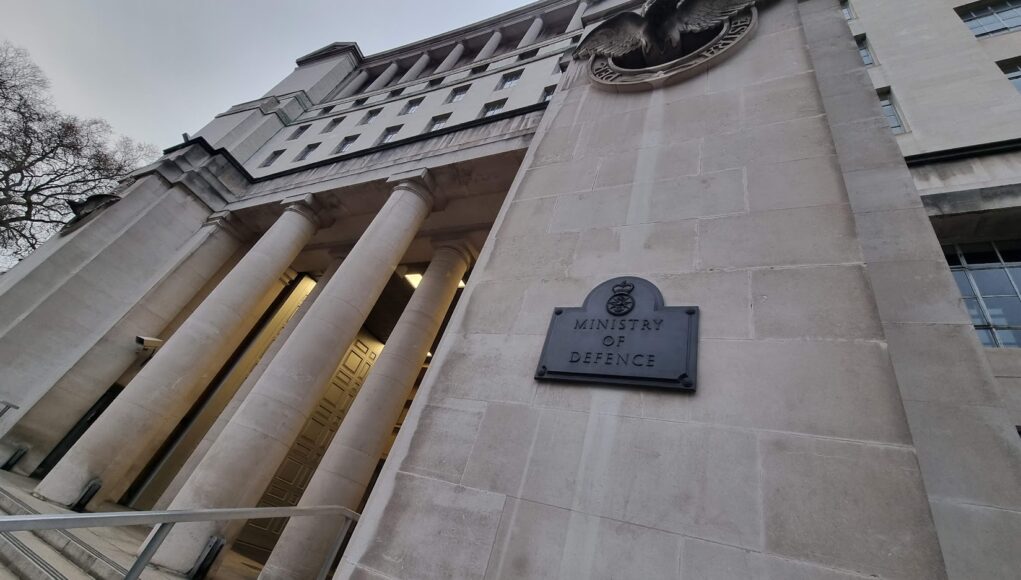
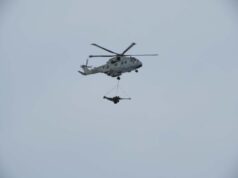

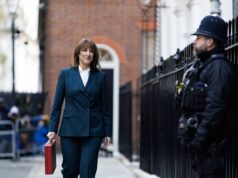
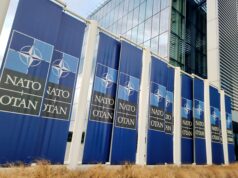
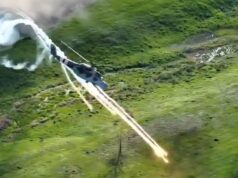

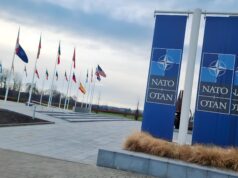

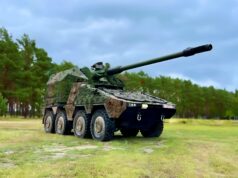
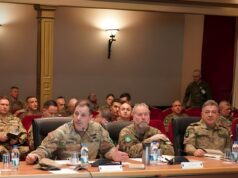

Needs streamlining by 90% not 10%!
Nonsense. With respect, with comments like that you clearly have no idea how defence works and what MoD staff do.
You’ve just wiped out most of DD, DNO, DES, DSTL, DARA, UKHO, DIO, DTE, DM, And the MDP, and left the frontline commands crippled as there are no longer any CS to staff the HQ Directorates, make policy in Main Building, or the supply chains, meaning MoD then contracts out even more or strips the front line to do more rear echelon roles that there are no longer the staff to do.
Oh, and Defence intelligence has gone down the shitter too as a lot of its analytical staff are civil service, not just military.
Defence DOES NOT consist of a navy, army, air force and things that go BANG!
Without the rear, it fails.
Oh no, not the DD, DNO, DES, DSTL, DARA, UKHO, DIO, DTE, DM and MDP!
We’ll have hardly any alphabet left!
DD = Director of Doctrine?
DNO = Director of Naval Operations
DES = Defence Equipment and Support
DSTL = Defence Science and Technology Laboratory
DARA = Defence Aviation and Repair Agency
UKHO = ?
DIO = Director of International Organisations / Defence Information Operations
DTE = Defence Training Estates
DM = Defence Munitions?
MDP = Ministry of Defence Police
Man, I love that acronyms PDF.
5 out of 10…..🤔
Your training is clearly not complete, my young apprentice.
DD Defence Digital. In short, runs MoDs comms.
DNO. Defence Nuclear Organisation.
Runs AWE, SDA ( Submarine Delivery Agency ) AWE, and so on. Biggest budget in defence, as we know to the detriment of all the rest
DES, yes.
DSTL, yes.
DARA, Defence Avionics and Repair Agency, now a part of DES.
UKHO UK Hydrographic Office, at Taunton.
DIO Defence Infrastructure Organisation. Runs the MoD estate.
DTE, yes, a part of DIO.
DM, Yes!!! Good! 😉
MDP, yes.
And once you’ve mastered these we shall start you on the individual directorates within each! 😆😉
In all seriousness, a 90% cut to that lot and Defence is dead. The UKDJ is seemingly beginning to be read by some if the higher ups, is being recognised for its work, and daft comments like that do not enhance its reputation one bit.
I think some of those more “civilianised” organisations like UKHO slipped below the radar re being included in the document.
Btw Daniele, do you know who I email to get comment notifications sorted out? I haven’t been getting any since they updated the system.
And have you noticed the limit to thread length now? Very annoying, for an example see your reply to the other SB below.
Not until you have worked out who is
Supreme
Head of
Intelligence
Targeting….
Very old joke – sorry couldn’t help it.
🤔…..😆 I guess there are many candidates for you ex forces types.
Hi mate.
I cannot reply to your comments below as a reply option does not exist.
I use the “CONTACT US” option top of page. I’m sure George is aware of the issues.
Since the site crashed the other day I get no notifications either, and the edit function and comment history is gone too, a real shame.
Yes, that’s what I meant by the thread length limit.
It’s very annoying.
I’ll give it a go, not sure whether I’ll get a response.
I agree.
There is a lot of valuable work done.
I don’t like public sector bloat either but I will stand up for the good work and the necessary.
That said leaner faster processes are needed for some forms of procurement.
Some things do take too long mainly as a result of the ultra parsimonious MOD approach to spending small sums of money.
I’m sure I’ve heard those terms ‘Streamling and Leaner’ somewhere before? How did that work out??
I’ve worked across defence including DI and have seen the waste at first hand. No one gets sacked or made redundant. It’s bloated with too many projects that don’t add anything to defence. The size of defence civil service is totally out of kilter with the armed forces.
This will need to be done carefully by people that know what they are doing. There may be some scope for trimming, moving workloads around etc.
as much as some people think the MOD does nothing it’s does a lot. As the forces have got smaller the civilian side has had to take on a lot more work. Bit of a false economy is some respects as it makes the forces look smaller and weaker while just moving the jobs to the civilian side.
Also from taking jobs that in the past would have been done by serving personal and passing to civilians it may have got rid of some chances for service personnel to get a break from front line stuff. Broaden their skill set for civilian life etc etc.
Exactly this.
As an example, in the 90s each of the 3 services still had it’s own Communications Command.
They were merged into DCSA, Defence Communications and Services Agency ( calm SB…) which was renamed ISS and which is now called Defence Digital.
Mostly civil service, with various contractors and also tri service staff embedded.
The military were at first not comfortable with having such a vital component effectively civiliansised.
It’s now commonplace.
Agree a reduction that coukd free money for the frontline is desirable, but must be conducted with care.
They want to reduce the number of external contracts, because they are expensive, reduce the number of military working in MOD and get them back on the front line (civilianisation is a new word to me) and they want these roles to be taken over by civil servants, who are the cheapest. Fair enough so far. Then they want to reduce the number of civil servants too. Which doesn’t really compute. So they are going to fire twice the number of civil servants and try to hire back to fill gaps in areas like Defence Digital, where’s already a really tough market for IT professionals.
If they want to employ people who are three times as productive (to cover the doubled number of civilians lost and take on external/civilianised work too) in the same process environment, and in a competitive market, won’t they end up with the same situation as RFA, where they need to pay a lot more for these paragons, but because Civil Service pay is negotiated as a group, they can’t? I’m sure they can achieve half the plan, getting rid of civil servants, but will they be able to hire the people they need? If not won’t they have to buy in more professional services from outside to get the same job done? Which is what they did last time and how we ended up here. We want to reduce overall cost, not specific category headcounts and end up paying more.
The better plan is to hire people specifically to reduce MOD bureaucracy. To change the processes. Add internal service level agreements. Escalations. Then use the capacity that frees up to internalise the expensive professionals work and undertake civilianisation if it’s still needed (remembering the military inside MOD have relevant experience career civil servants won’t, and that knowledge transfer will still have to happen somehow).
Jon, can I just say Civil Service pay is negotiated by Dept and not as a whole. Even then if for instance where say Border Force and the Police are both part of the Home Office their pay scales and pay rises are negotiated separately with different outcomes.
Does that mean the RFA could get its own payscale with no real problem?
My understanding is the RFA comes under the MOD. They are civilian merchant seamen but do wear Navy uniform. They are augmented by specialist RN and reserve members. I don’t know how there pay scales work but clearly they need a uplift in pay to bring them back into line with where they need to be. Hopefully the current dispute can be settled in the near future and make the service more attractive to future entrants.
Why did MoD CS numbers go up from 2019? – anyone thought to pose that question to the SofS?
That was at a time when uniformed numbers were falling.
What makes you think that reducing uniform headcount means proportionately fewer civil servants are needed? Is the number of radios ordered proportionate to the number of people it takes to order them? Should buying a Type 31 only need two thirds of the number of civil servants than buying a Type 26?
The numbers went up because Cameron crashed them between 2010 and 2015. Work was put out to external companies and there wasn’t always the internal expertise to monitor projects. In some cases there wasn’t even enough experience left to act as an intelligent customer; those who write the contracts have to have some level of understanding too! It was realised that the cuts had been far too severe and attempts were made to recover, post-Levene, from 2016 onward. For example consultancy spending halved between 2015 and 2016. However getting a reasonable balance is permanently hampered because ministers love the headlines that come with cutting headcount or recruitment freezes. I’m always reading about some headcount wheeze or another, and here we go again. Everyone talks about how the armed forces need a mix of experienced people; the civil service will need that too.
I’ll say it again. We need to focus on overall cost reduction, not internal headcount or FTE.
Performance needs to be accounted for, the MoD has waited billions of pounds on equipment programs that are either years late or never delivered. If people can’t get the job done, show them the door and hire people who can get it done on time and on budget.
Consider our procurement to the French. In just over a decade they have pushed out the Serval family of vehicles. Development started in 2018 and by 2024 489 vehicles in service 978 by 2030
Griffon 1437 in service by 2030
Jaguar EBCR 12 years development and 330 to be in service by 2035.
A whole new range of vehicles developed and fielded in 12 years
The French get far more bang for their buck than we do.
Always the same in the civil service, no one has the guts to get rid of rubbish so they encourage early retirement and Department switches and lose the most experienced and ambitious staff. Idiocy that has gone on in the same way for decades
I work in the CS (technically a non departmental government body which is not defense related).
I can tell you that in my two years of experience ‘taking the Kings shilling’ that it is indeed an absolute money pit. The bloated beuaracracy and glacial decision making processes, combined with systems and hierarchy that might have sense 50 years ago, mean that productivity is extremely low, and waste is extremely high. I’ve never seen anything like it, certainly not in my 30 years of private sector experience.
There is much that could be done to improve that situation, but the problem is, all the people in the position to make those changes, don’t want. Blocked at every level.